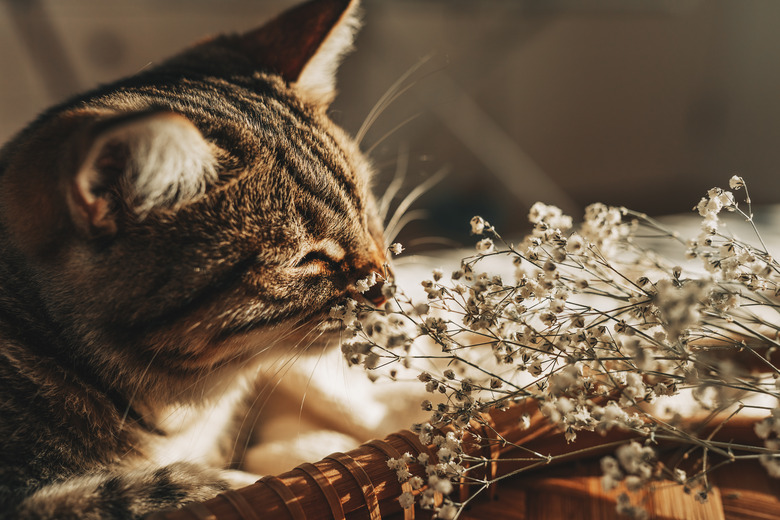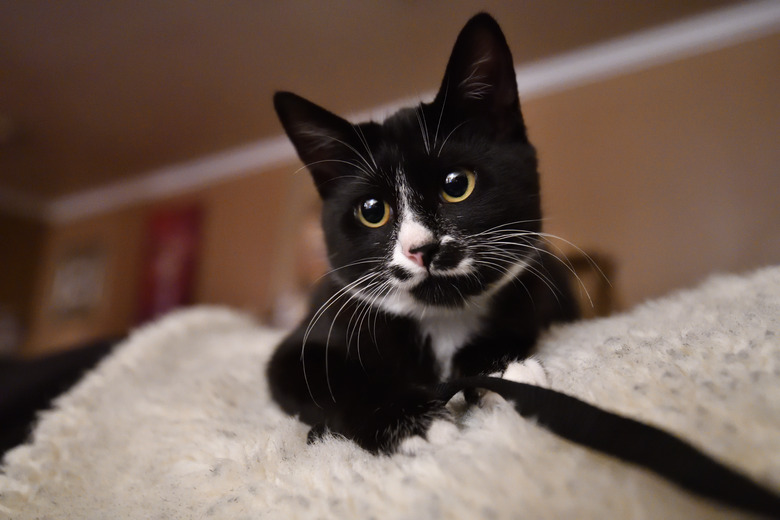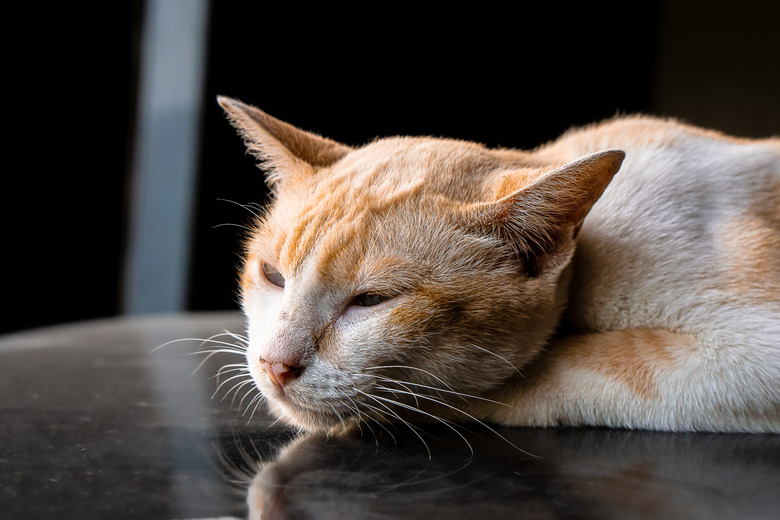Why Is My Cat Sneezing A Lot?
The occasional sneeze isn't a big deal, but repetitive sneezing and shaking of the head indicate an ongoing health issue that requires immediate attention. Many feline health problems impact the nasal passages, including respiratory infections, ear disorders, and physical injuries. Contact your veterinarian if your cat is sneezing regularly or if you notice additional signs of illness.
Should I be worried if my cat sneezes a lot?
Should I be worried if my cat sneezes a lot?
Persistent sneezing is cause for concern, especially when accompanied by other symptoms. This typically indicates an underlying health problem that may be serious in nature. Seek veterinary attention for a diagnosis and treatment.
Why is my cat sneezing a lot?
Why is my cat sneezing a lot?
There are a few common causes of sneezing in cats, including nasal cavity tumors, viral infections, allergens, ear disorders, and foreign bodies in the cat's nose.
Upper respiratory infections in cats
Upper respiratory infections plague animal shelters and other feline communities throughout the country. The disease affects cats of all ages and is a prime suspect in cases of chronic sneezing and nasal discharge. Some cats suffer from chronic infections that produce sporadic symptoms for weeks or months until treated.
The two most common causes of upper respiratory infections in cats are the viral infections feline herpesvirus and feline calicivirus. Vaccination doesn't completely prevent infection of these two viruses, but it can help reduce the severity of symptoms. Other causes of upper respiratory infections in cats are chlamydia and feline immunodeficiency virus. Cats can get secondary bacterial infections on top of the viral infection.
Feline herpesvirus can cause chronic rhinitis and in some cases, corneal ulcers that require lifelong veterinary care. Treatment for ulcers is directed at managing a cat's immune system response to the virus. Cats with mild cases of feline herpes may just have a runny eye during flare-ups. Feline calicivirus can cause oral ulcers, which result in drooling, fever, and decreased appetite.
Other classic signs of respiratory infection include:
- Diminished sense of smell, leading to weight loss and loss of appetite
- Discharge and inflammation of the eyes
- Thick nasal discharge that may be a yellow, green, or reddish color
- Uncharacteristic aggressive or antisocial behavior
- Pawing at the face or ears
Dental disease can sometimes cause signs that mimic rhinitis, like a stuffy nose, pawing at the face, and a runny nose.
Allergic reactions in cats
Some cats suffer from allergic reactions when exposed to particular irritants in the environment or their food. Sneezing, loud breathing, and itching around the eyes or ears are common signs. Felines exposed to allergens can also develop severe gastrointestinal distress, including vomiting and diarrhea. Finding the irritant is a long process that requires restriction of your cat's movement and diet as determined by your veterinarian. Cigarette smoke, cat litter dust, and cleaning products are possible irritants.
Physical obstruction or injury in a cat's ears or nasal passage
A pet can inhale a foreign body, like a blade of grass, into their nasal passage. Damage to the sensitive lining inside the nasal passages can lead to discharge, sneezing, and general discomfort. Internal injuries can cause subtle, chronic symptoms until they heal. There may also be some bleeding inside the nasal passages, which reddens the nasal discharge.
Pieces of plant matter and other small objects can get stuck inside the narrow passages in the cat's nose and ears. Aside from discomfort, sneezing, and swelling, this can also limit your cat's hearing or breathing. Objects stuck in the ear can also create an opportunity for infection to take hold.
Head shaking and sneezing are symptoms of nasal polyps, which are noncancerous growths common in younger felines.
Ear disorders in cats
Your cat relies on their ears to maintain balance and general awareness of the environment. Infection, swelling, or parasitic infestation of the ear canal can be extremely uncomfortable and disconcerting for your pet. Cats with ear issues often paw or scratch at their ears and shake their head.
Treating your cat's condition
Treating your cat's condition
Most feline respiratory ailments are treatable. Treatment varies widely depending on the condition, and some illnesses can cause serious complications if unaddressed, so it is important to seek help from a veterinarian.
Veterinarian diagnosis
Determining the cause of your cat's symptoms can be a complex task that requires a detailed physical examination and various tests. Your veterinarian may conduct bacterial or fungal cultures to identify pathogens in the ears or nose. Blood and urine analysis can also reveal underlying health issues, exposure to toxins, and other ailments.
If there's a tumor or lesion of some sort, your cat may need a biopsy. If your veterinarian suspects a foreign body, like a blade of grass, they may perform rhinoscopy to look inside your cat's nasal cavity. For cats with suspected dental issues, your veterinarian may take dental X-rays to look for signs of dental infection that aren't visible on a physical exam.
Reversing your cat's condition
Your cat's prognosis depends on the underlying cause and available treatment options. Anesthesia and minor surgery may be required to safely remove foreign objects and other obstructions.
Many infections can be cured with a course of antibiotic or anti-fungal medicine. Ear mites and infections require routine administration of medicine at home. Infections like feline leukemia, FIV, and herpes are not curable, and diseases like feline infectious peritonitis are generally fatal. In these instances, the focus is on managing symptoms and discomfort.
Follow your veterinarian's instructions and complete the treatment exactly as prescribed.
The bottom line
The bottom line
A brief bout of sneezing isn't anything to worry about, but if your cat keeps sneezing persistently or severely, seek veterinary care. It could signal a potential health issue, such as a respiratory infection, nasal passage obstruction, ear disorder, or allergies. Such ailments can cause cats significant discomfort and may lead to further problems if unaddressed. A veterinarian can provide treatment to alleviate symptoms if not reverse the condition.



